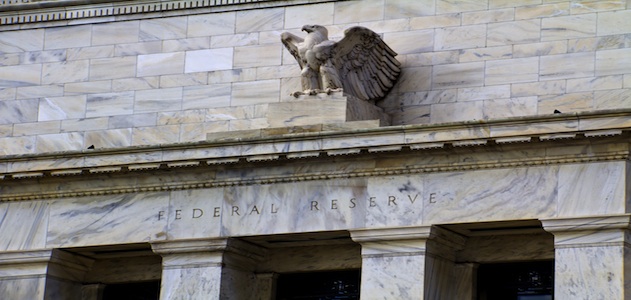The housing market sits in the crosshairs as Fed officials continue to ruminate over when to begin their tapering of mortgage-backed securities asset purchases.
Until their next play is announced, it seems analysts in the market are content to point out that MBS purchases have been valuable to the improving housing market and may be delayed for that reason, leaving the Fed to carve back on Treasury purchases first.
A study presented by experts at the Kellogg School of Management argues asset purchases had a more narrow effect on asset prices than Fed officials suggest. And with fears that MBS tapering will only push rising rates higher, there may be some reluctance to stop the MBS purchase gas pedal when it's just as easy to carve back on Treasury purchases first.
Still Roger Meiners, an economics professor at the University of Texas at Arlington, admits that while the Fed is afraid MBS purchases will push rates higher, harming housing, the inevitable carveback has to come at some point.
Furthermore, the study from the Kellogg School, which was presented at the Fed's 2013 Jackson Hole conference, provided even more evidence that tapering will begin with Treasury purchase cutbacks, since MBS acquisitions have been used to stabilize and lower rates, fueling housing.
In response to the study presented at the Jackson Hole conference, Goldman Sachs conducted its own analysis.
“We continue to expect that Fed officials will adjust the mix of instruments somewhat away from QE towards forward guidance at the September meeting and focus most if not all of the tapering on Treasury purchases rather than (current coupon) MBS purchases,” Goldman Sachs said in its analysis.
“We expect the FOMC to taper its asset purchases at the September meeting mostly if not entirely in Treasurys,” said Jari Stehn of Goldman Sachs.
In an analyst report released by the company in June, Goldman Sachs revealed that the most recent Survey of Primary Dealers conducted by the New York Fed implied expectations that Treasury and agency MBS purchases will end in the second quarter of 2014 and the fed funds rate will be increased in the third quarter of 2015.
Goldman analysts claim to hold a more dovish view, projecting QE purchases will end in the third quarter of 2013 and the fed funds rate will be increased in the first quarter of 2016.
UT-Arlington Professor Roger Meiners believes whether MBS or Treasury bonds taper first, interest rates are still going to rise or react to the news.
"It will happen some time for sure, but the administration seems to pressure the Fed to keep pumping cheap money out. The longer we wait to end the program the worse things will be at the other end," Meiners said.
According to Meiners, the long run result will be the same and the longer it is delayed, the nastier the change will be. "A lot of activity was stirred by the cheap money — high rates will kill activity for some time come," he added.




